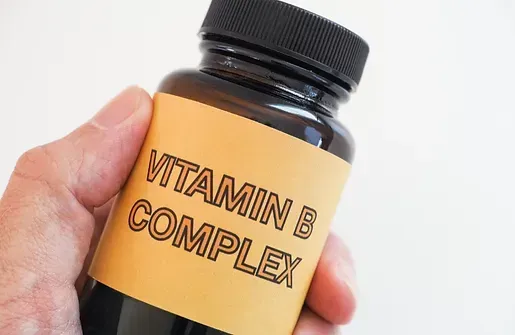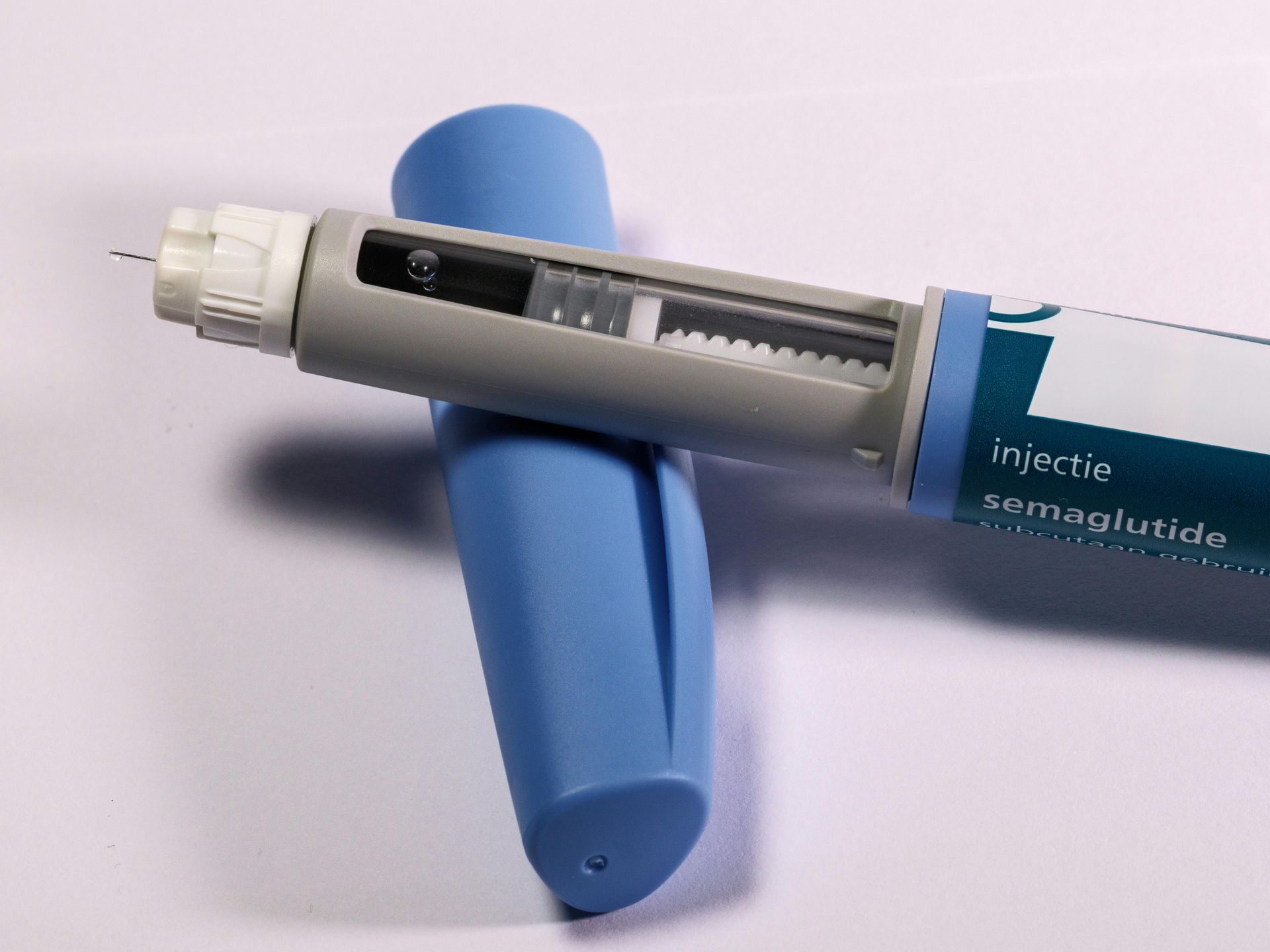What Are All the B Vitamins?
The B Vitamins, also known as B Complex, are 8 different water soluble vitamins essential for various metabolic processes.

What are the Types of B Vitamins?
- Thiamin (B1)
- Riboflavin (B2)
- Niacin (B3)
- Pantothenic acid (B5)
- Vitamin B6 (pyridoxine)
- Biotin (B7)
- Folate or folic acid (B9)
- Methylcobalamin (B12)
What is B-Complex?
B Complex refers to a group of eight essential B vitamins that play crucial roles in maintaining good health and well-being. These vitamins include B1 (thiamine), B2 (riboflavin), B3 (niacin), B5 (pantothenic acid), B6 (pyridoxine), B7 (biotin), B9 (folate), and B12 (Methylcobalamin). Together, they support various bodily functions such as energy production, red blood cell formation, and proper nerve function. Each B vitamin has unique benefits; for instance, B1 helps convert nutrients into energy, B6 aids in amino acid metabolism, and B12 is vital for neurological health. A deficiency in any of these vitamins can lead to significant health issues, making it important to ensure adequate intake through diet or supplementation. Foods rich in B vitamins include whole grains, meat, eggs, legumes, seeds, and leafy greens, offering a natural way to maintain optimal levels and promote overall health.
B1 (Thiamine)
Thiamine is essential for converting carbohydrates into energy, making it vital for metabolism and overall energy levels. It also supports nervous system function and plays a role in muscle contraction. Deficiency in B1 can lead to conditions like beriberi and Wernicke-Korsakoff syndrome, affecting cardiovascular and neurological health.
Best Sources of Vitamin B1
- Whole grains (brown rice, oatmeal)
- Pork
- Sunflower seeds
- Legumes (beans, lentils)
- Nuts
B2 (Riboflavin)
B3 (Niacin)
Niacin supports the digestive system, skin health, and nervous system function. It plays a crucial role in converting food into energy and helps lower cholesterol levels. Pellagra, characterized by dermatitis, diarrhea, and dementia, is a severe form of niacin deficiency.
Best Sources of Vitamin B3
- Poultry (chicken, turkey)
- Fish (tuna, salmon)
- Whole grains (brown rice, barley)
- Peanuts
- Legumes (beans, lentils)
B5 (Pantothenic Acid)
Pantothenic acid is vital for synthesizing coenzyme A, crucial in fatty acid metabolism and energy production. It also aids in producing hormones and cholesterol. While deficiency is rare, it can cause symptoms like fatigue, irritability, and numbness.
Best Sources of Vitamin B5
- Chicken
- Beef
- Eggs
- Whole grains (whole wheat bread, oatmeal)
- Avocados
B6 (Pyridoxine)
Pyridoxine is involved in amino acid metabolism, red blood cell production, and neurotransmitter synthesis. It's crucial for brain development and function. B6 deficiency can lead to anemia, dermatitis, depression, and a weakened immune response.
Best Sources of Vitamin B6
- Fish (salmon, tuna)
- Poultry (chicken, turkey)
- Potatoes
- Bananas
- Chickpeas
B7 (Biotin)
Biotin is key for carbohydrate and fat metabolism and is often associated with healthy hair, skin, and nails. It also supports gene regulation and cellular signaling. Symptoms of biotin deficiency include hair loss, skin rashes, and neurological issues.
Best Sources of Vitamin B7
- Eggs (particularly the yolk)
- Nuts (almonds, walnuts)
- Seeds (sunflower seeds)
- Sweet potatoes
- Spinach
B9 (Folate)
Folic acid is essential for DNA synthesis and repair, red blood cell formation, and proper brain function. It's especially important during pregnancy to prevent neural tube defects in the developing fetus. Deficiency can lead to megaloblastic anemia and birth defects.
Best Sources of Vitamin B9
- Leafy green vegetables (spinach, kale)
- Citrus fruits (oranges, lemons)
- Legumes (beans, lentils)
- Fortified cereals
- Asparagus
B9 (Folate)
Folic acid is essential for DNA synthesis and repair, red blood cell formation, and proper brain function. It's especially important during pregnancy to prevent neural tube defects in the developing fetus. Deficiency can lead to megaloblastic anemia and birth defects.
Best Sources of Vitamin B9
- Leafy green vegetables (spinach, kale)
- Citrus fruits (oranges, lemons)
- Legumes (beans, lentils)
- Fortified cereals
- Asparagus
B12 (Methylcobalamin)
Cobalamin is crucial for neurological function, DNA synthesis, and red blood cell production. It also helps maintain healthy nerve cells and prevents megaloblastic anemia. B12 deficiency can cause fatigue, weakness, constipation, loss of appetite, and neurological issues like memory loss. It's particularly important for vegetarians and vegans to monitor their B12 intake since it's primarily found in animal products.
Best Sources of Vitamin B12
- Meat (beef, liver)
- Fish (salmon, trout)
- Dairy products (milk, cheese)
- Eggs
- Fortified plant-based milk (soy, almond milk)
Conclusion
In conclusion, B Complex vitamins are essential for maintaining various bodily functions, from energy production to neurological health. Each of the eight B vitamins—thiamine, riboflavin, niacin, pantothenic acid, pyridoxine, biotin, folate, and methylcobalamin—plays a unique and critical role in ensuring our bodies operate efficiently. By incorporating a diverse range of foods such as whole grains, lean meats, dairy products, legumes, nuts, and leafy greens into our diets, we can help meet our daily B vitamin requirements. For those with dietary restrictions or specific health conditions, supplementation might be necessary to avoid deficiencies. Understanding and prioritizing these vitamins can lead to improved overall health, increased energy levels, and better mental and physical well-being. Make sure to consult with a healthcare provider to tailor your intake to your individual health needs.






